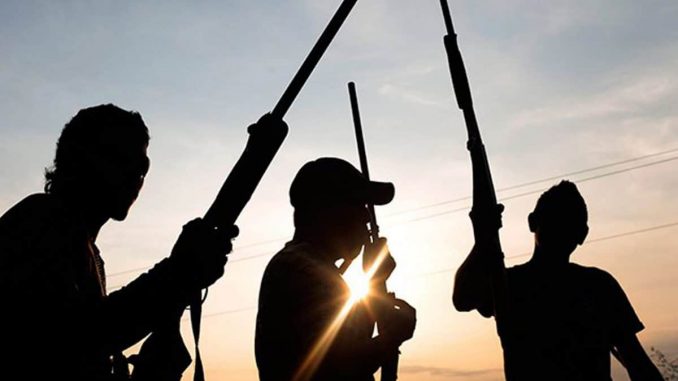/ News
Views: 307
Northern elders push for bandit dialogue amid rising violence in North West

A coalition of northern elders has called on governors in the North West region to embrace dialogue with armed bandits, arguing that continued reliance on military force has done little to stem the tide of violence devastating the region.
The Northern Elders Progressive Group, speaking in Kaduna, urged state leaders to work closely with the Office of the National Security Adviser (NSA) and other federal agencies currently exploring non-kinetic methods to address the crisis. The group’s coordinator, Yusuf Abubakar, expressed support for what he described as promising early steps taken by the NSA, Malam Nuhu Ribadu, and other stakeholders involved in peace-building efforts.
“We are happy with the steps being taken so far,” Abubakar said. “Travelling recently from Sokoto to Gusau, and from Funtua to Zaria, I observed a more peaceful atmosphere. Compared to before, there is improvement in security, in patrols, and in the safety of commuters along that road.”
Abubakar challenged the current strategy of repeated military operations and condolence visits, saying they have failed to produce long-term results and only stretch already overburdened security forces. He argued that prioritising peace over political symbolism should be a moral imperative for regional leaders.
“It is better for a governor to spend his resources on saving lives than spending billions on condolence. One life is far more important than any political gesture,” he said.
Responding to critics who view negotiations with criminal groups as a sign of weakness, Abubakar cited examples from other conflict zones where dialogue has been used to de-escalate violence. According to him, even global powers have engaged armed groups when necessary.
“Even powerful nations have negotiated with groups like the Taliban, Al-Qaeda and the Houthis. Negotiation is not weakness; it is about saving lives,” he stated.
The group also criticised what it described as political grandstanding by some state governors who allegedly withhold actionable intelligence on bandit movements. Abubakar questioned why such information was not being used to prevent attacks or shared with security agencies.
“It is unbecoming of a leader to say he knows the movements of criminals but does nothing with the information. Such propaganda is irresponsible,” he said.
Defending the ongoing non-kinetic initiative, Abubakar warned against efforts to politicise the work of the NSA and the national committee overseeing the dialogue process. He described the office as a symbol of national unity and stability and said undermining its efforts could have dangerous consequences.
“The Office of the National Security Adviser represents unity, peace and security for the country. Attacking it is an attempt to destabilise the whole nation,” he added.
The group also applauded the efforts of Senator Shehu Buba, Chairman of the Senate Committee on Intelligence, who they said has been instrumental in supporting the peace initiative. Abubakar said Buba’s commitment to dialogue deserves recognition, not political attacks.
“Shehu Buba, chairman of the Senate Committee on Intelligence, who has worked tirelessly to ensure the success of the ongoing dialogue, deserves commendation and not attacks. Their real target is the laudable initiative of the National Security Adviser, Malam Nuhu Ribadu.”
He concluded by calling on all governors in the North West to align their efforts with those of the NSA, the Minister of Defence, and the Service Chiefs, stating that only a united front can bring a lasting solution to the persistent crisis.
“Every good and responsible northerner should welcome any genuine effort aimed at ending the bloodshed and incessant attacks by bandits and other agents of disunity,” Abubakar said.
Despite the controversy surrounding negotiation with armed groups, the Northern Elders Progressive Group insists that the priority must be saving lives, especially in a region where thousands have died and millions have been displaced. Whether their call will shift current policy remains uncertain, but the debate over how best to achieve peace in the North West is far from over.